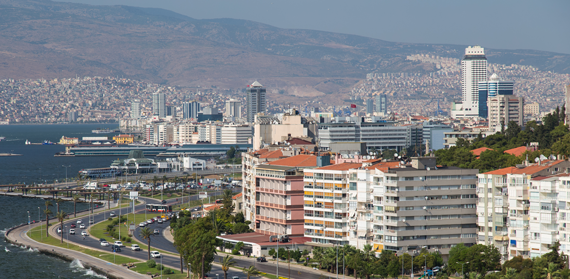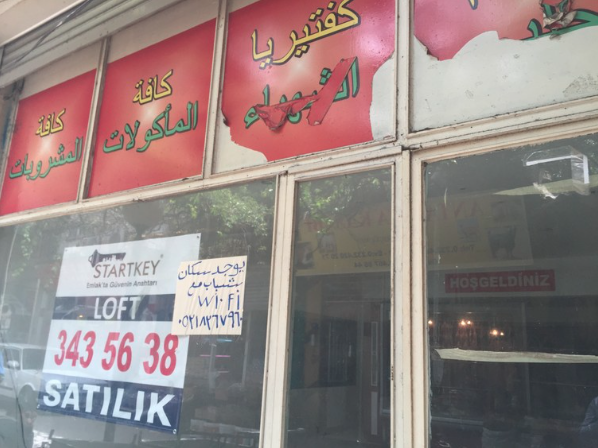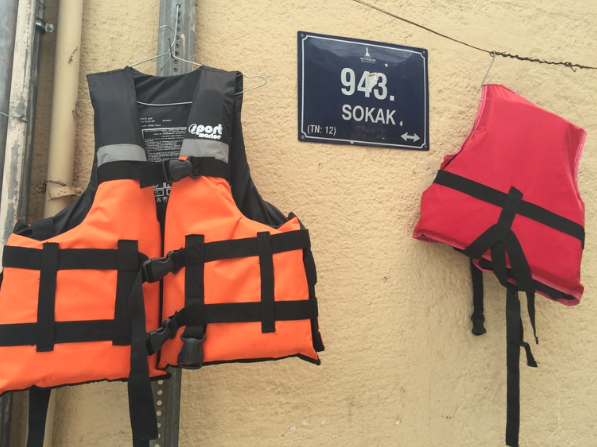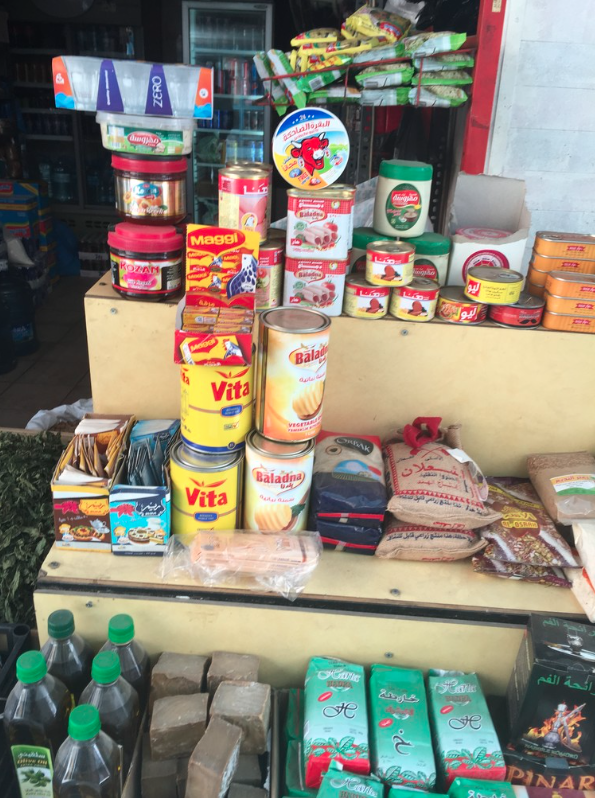Guest post by Professor Heaven Crawley, Centre for Trust, Peace & Social Relations and Professor Gokay Özerim, Department of International Relations & Director of EU Research Center, Yaşar University
İzmir is Turkey’s third largest city, and plays host to a significant number of the estimated 2.7m Syrian refugees now living in the country. The city has hosted refugees for a long time, and during the 1990s and 2000s it was a particularly important destination for Iraqis and Afghans. But since the war in Syria began in spring 2011, its Syrian population has increased significantly.
While many Syrians have made İzmir their home, the city is also a natural stopping point on the way to Greece, a mere 8km across the Aegean Sea. During the summer and autumn of 2015, İzmir became one of the most important transit points for those hoping to reach Europe via the Greek islands. More than 850,000 people made the crossing, around half of them Syrian.
İzmir’s Basmane district came to the world’s attention as one of the main transit points for people in search of protection and a better life. It was a place to meet the smugglers, whose offer of a trip in an overcrowded rubber dinghy offered at least some hope for the future. Images of its shops selling hundreds of orange life vests alongside tailored suits grabbed the public’s imagination. New hotels, boarding houses, cafes and shops popped up, all providing much needed services to Syrian refugees as they waited to make the crossing.
But in recent months, everything has changed.
The EU has now signed a deal with Turkey intended to stem the flow of refugees making their way to Europe. In return for taking back refugees who make it to Greece, Turkey has been promised €6 billion and a host of political concessions.
Widely criticised by the international community, the EU-Turkey deal has been largely successful on its own terms. Faced with the prospect of being detained in one of Europe’s new asylum processing “hotspots” and returned to Turkey or becoming trapped in Greece following the closure of the border with Macedonia, many of those waiting in İzmir have changed their plans.
Slow business
A shop formerly owned by Syrians but now for sale. Author provided
During the autumn of 2015, when we were conducting research into the experiences, hopes and aspirations of Syrians living in İzmir’s, Basmane’s Corakkap Mosque was the meeting point for hundreds of people waiting for smugglers, dealers or daily support from the local community and NGOs. But when we visited recently, we found the area deserted.
When we ask a taxi driver sitting in front of the mosque where everyone had gone, he answers: “The border has been closed, so there is no reason for the refugees to wait here anymore. They stay in cheap hotels in the neighbourhood or they have settled by renting apartments.”
Little remains of the businesses that sprang up to meet refugees’ demands, and which dominated the neighbourhood only a few months ago. We see just one shop with a life vest in the window, and ask the owner why he still has these items for sale. He quickly tells us that the life vests are not for sale to refugees, but rather are intended for those planning a trip on a Turkish tourist cruise ship.
In the backstreets, we see another two life vests hung outside a shop. This time, the seller tells us downheartedly that these have been on sale for two weeks, but no-one’s interested. Sales, it seems, are most definitely down.
The sale of life vests is down since the EU-Turkey deal was struck. Author provided
But the sale of life jackets and rubber dinghies is only part of the story of the informal economy that developed in Basmane in response to the arrival of large numbers of refugees.
Cafes, shops and grocery stores quickly sprang up to meet the growing demand, but today, many of these places sit empty. Syrians who were making a living in Basmane have sold up and moved to other parts of the city where the population is more established and people are living and working in many textile and other factories that provide a wage, however meagre.
Finding a home
But everything is not quite what it seems.
We take a turn and walk along another street and enter another world: a Syrian ethnic neighbourhood with bustling shops, grocery stores, restaurants and barbers. All have bilingual signboards in Turkish and Arabic. Two of the restaurants have Syrian waiters and serve mostly Syrian food.
Syrian, Turkish and European goods for sale in a small Syrian-owned store. Author provided
We get chatting to a small group of Syrian men outside their small grocery store selling a mixture of Syrian, Turkish and Western food. Over a cup of dark Syrian coffee the owner tells us that he has been living in Turkey for five years, during which time he saved up enough money to buy the store.
We ask why he didn’t head across the Aegean with the others. “Europe means to learning a new language and integration into a new culture to start a business or to work,” he replies. “It means spending at least two years trying to integrate. We can work and survive here easily because there are many Syrians in this neighbourhood. We are obliged to look after our families and we need to work. This is easier for us in Turkey and we feel good here.”
The owner tells us that many of the goods are imported from Gaziantep and Kilis near to the Turkish border with Syria. The Syrian bread sold in the store is produced by a neighbourhood bakery established by another Syrian refugee.
A few minutes later the headman (mukhtar) of the street invites us to his office located just a few doors away. He shows us the registration papers of around 80 settled Syrians who are living in his street, together with copies of their temporary protection identity cards. For these people, Basmane is no longer a pit stop: it has become a home. The headman tells us that most of the settled Syrians work in the neighbourhood, mostly in the factories producing low-quality textile goods.
We ask about the relationship between the local community and those who are newly arrived. Do they get on? “Sure” he says, “we have to. They are settled here and we have no other options other than communicating. In the beginning, there was tension between the young groups. But we are very close with each other now. Even my tenants are Syrians and we love them.” This is view is supported by a recent survey of attitudes towards Syrians living in the city.
It’s clear that the story of Basmane is not yet finished.
The streets may no longer be crowded with refugees looking to make the Aegean crossing to Greece but the impact of the latest wave of migration neighbourhood is clear for all to see. As news that the EU-Turkey deal may be on the verge of collapse reaches the streets of Basmane, it seems almost certain that the neighbourhood will start to re-orientate itself to whatever comes next – just as it always has done.
Read more on the MEDMIG project here.
Originally written for ‘the Conversation’.







Comments are disabled